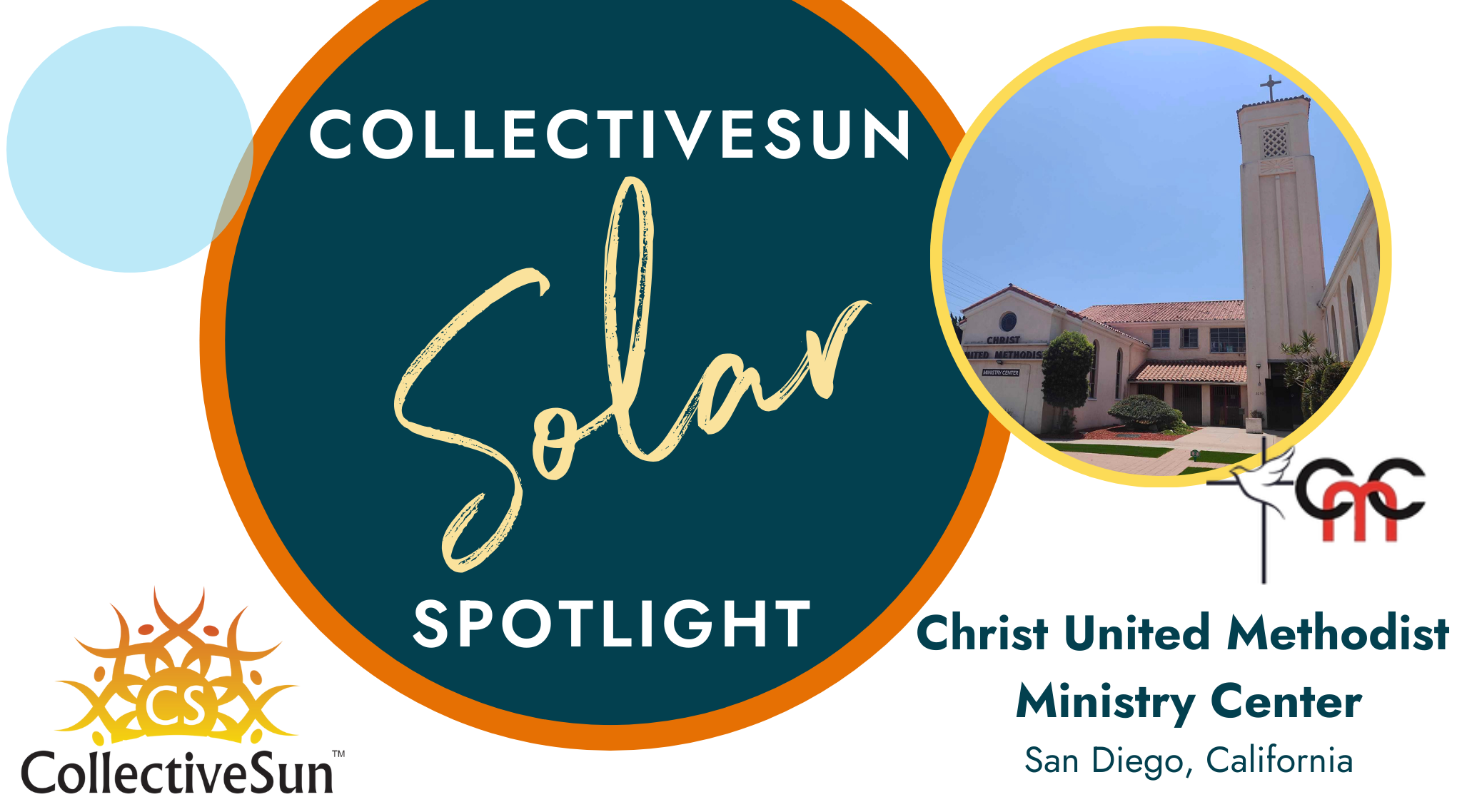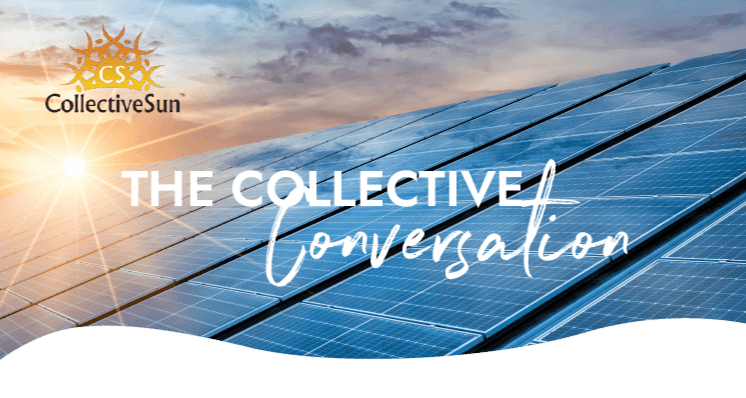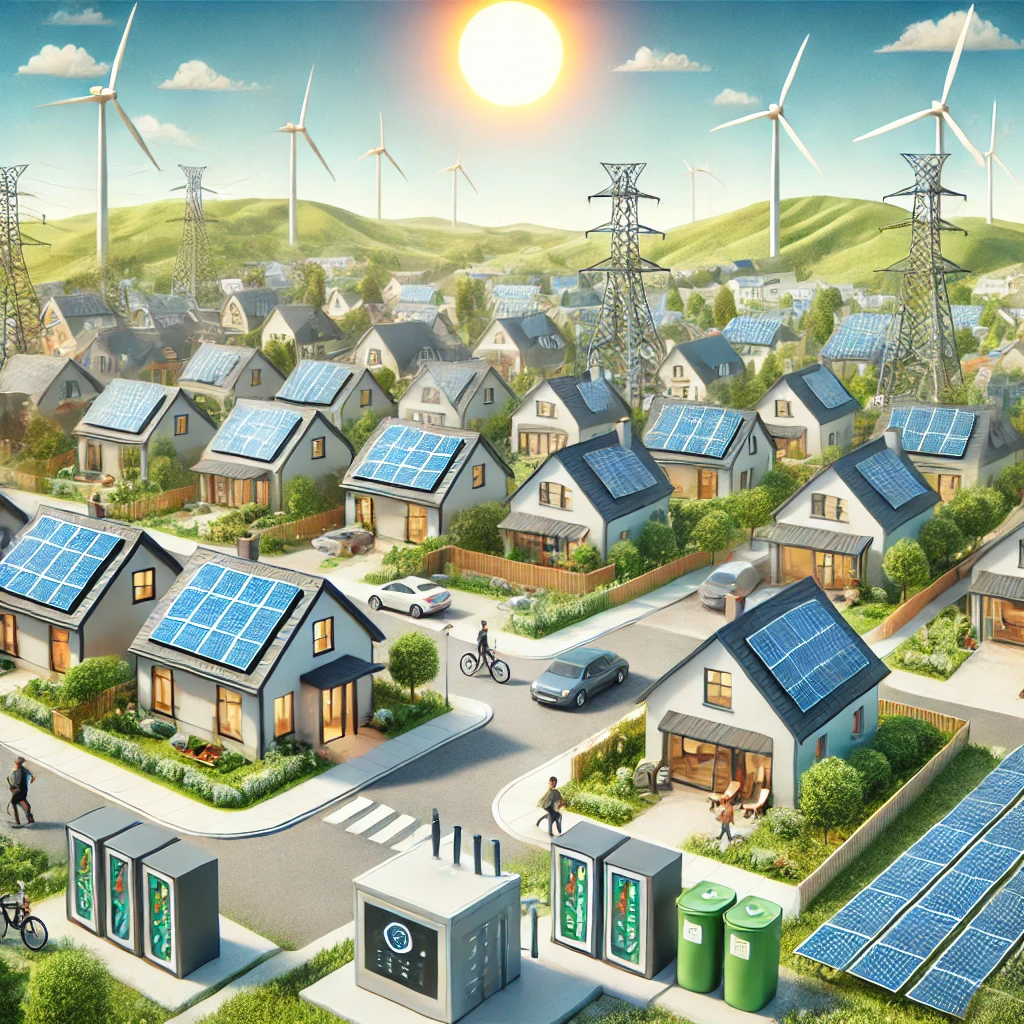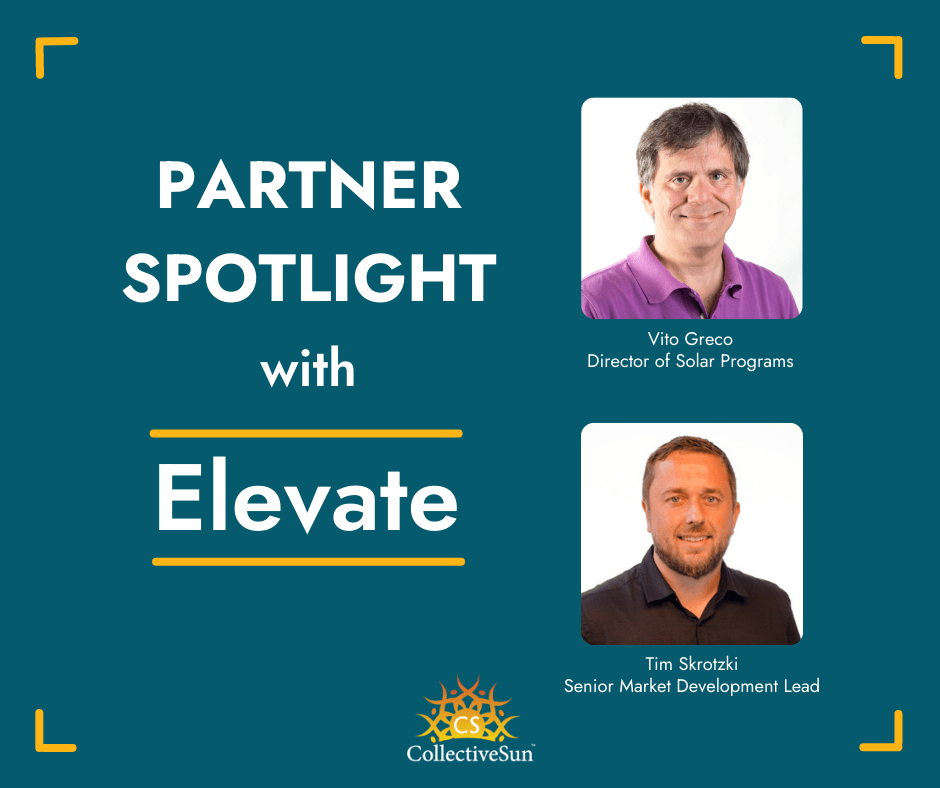
Over the years CollectiveSun has recognized that a key aspect of our work is the support of a number of partnerships with mission-driven organizations committed to bettering the lives of their communities through clean energy. It is why we seek to highlight these partners and the work they do to forward solar development in America.
We began the Partner Spotlight series by speaking with Generation180 and have also had conversations with partners Greenworks Lending and EnergySage. We continue the series focusing on our strategic partners by interviewing Elevate, a Chicago-based nonprofit focused on promoting smart energy use through the transformation of our country’s energy system into one that is cleaner and more inclusive. The interview features Tim Skrotzki, Senior Market Development Lead at Elevate, and Vito Greco, their Director of Solar Programs. The two men spoke about the organization’s programming, the impact of COVD, goals for promoting energy equity, and the future of solar.

We would like to begin by learning about Elevate’s organizational story and mission.
Vito: Elevate is a 20 year old nonprofit with 160 employees. Our primary focus is affordable housing, critical service providers, and public sector that serve low and moderate income communities. A big part of what we do is develop and manage programs that deliver energy services to these focus areas to lower their energy burden and get the latest technical solutions out to people who can’t typically access them.
Tim: About seven years ago when I started with Elevate, we started to look at expanding the programs from Chicago and bringing them to other markets. I was one of the first employees at Elevate who wasn’t based in Chicago. I was based here in Michigan, and we started looking at expanding services from Illinois to my state. Seven years later we have robust programs that support every type of community from rural communities in Michigan and, especially the harder hit, bigger cities like Detroit. We’re in eight states now.
Is there a specific program, project, or an event that you would like to highlight?
Tim: There are two projects in Michigan that we’re really excited to talk about. The first one is the Detroit Solar Toolkit. Elevate responded to a Solar Feasibility Study RFP and partnered with the National Renewable Energy Laboratory, Detroit Collaborative Design Center, EcoWorks, Great Lakes Environmental Law Center, and Data Driven Detroit. Through this partnership, we created an online interactive map of every single parcel in the city of Detroit and its solar potential. We also created other toolkit items such as a policy review and a solar 101 document to teach Detroiters about solar. Our partners also helped us create a solar design guideline to really look at the unique landscape of Detroit and make sure solar fits into that.
We finished that project a few years ago, and now we’re developing a Resilient Eastside Initiative in which we are working with community development organizations in the eastside of Detroit led by Eastside Community Network and Brilliant Detroit in partnership with the City of Detroit Office of Sustainability. We’re looking at how we can build solar plus storage powered resilience hubs that will help Detroiters during climate weather emergencies. Our first project for that is the Lenox Center, which will include a solar and storage system that will operate for at least 72 hours when the grid is down.
Vito: Elevate administers an energy efficiency program that has been our flagship for nearly 20 years. We also administer workforce development programs and now solar programs. One of these is the Illinois Solar For All program, which is funded at about $3 million a year and offers solar for low income and environmental justice communities. Residents can qualify for, in most cases, free solar, but we also have a lot more to that program. I’m particularly excited about the resilience hubs. We’re doing a lot more work with solar and storage and microgrids, and we’re starting to shift into building rather than just analysis and design and theoretical work. We have several that are in the pipeline to be built in Detroit, and we’re working in Chicago on a microgrid project in Englewood. And it looks like we’re doing more in Wisconsin and elsewhere.
How is Elevate working to accelerate the arrival of a 100% clean energy future?
Tim: We’re not only focused on building but who’s building it. We want to see businesses that reflect the community, that are from the community. So we are dedicated to supporting minority contractors, entrepreneurs in these communities. We want to help build them up so they can make up the workforce, so that the benefits of the solar and storage resilience hubs, or just solar on someone’s home, also benefits the workforce in the community. We’re really dedicated to building up these contractors so they can do more work like this.
Vito: It would be great if we can hit that goal of 100% clean energy, but, to Tim’s point, how you do it is just as important as whether or not you do it. Who reaps the many benefits of the value of the energy that you have to pay for, the value of who built it and benefits from the jobs? So we spend a lot of time not just getting things built but also really trying to innovate business and ownership models to ensure that the benefits get to the people. So, if we’re doing solar and energy efficiency in a multifamily building, we make sure that the value of those upgrades doesn’t just go to the property owner but to the tenants as well.
Why is Elevate focused on housing, education, and clean energy?
people who need it most. Energy burdens are highest among the most vulnerable and they have a lot of other risks that they have to deal with. So we have to find ways to get these best solutions to those who need them most. Going back to 100% clean energy, if we just wait to get solutions and clean energy to the most vulnerable people, they’re last in line and the inequity gets worse and worse. So we have to put equity at the forefront.
Tim: One of our initiatives in numerous states is Energy Efficiency For All which actually brings housing and energy professionals together to talk about how we can make healthy, energy-efficient, affordable housing. Through that effort, we do a lot of work on this energy burden Vito mentioned. In Michigan, the average low-income Michigander spends about 15% of their salary on energy bills, and in Detroit, that’s up to about 19% on average. Anything above 6% is considered an energy burden. The cost of electricity in Michigan is the highest in the Midwest. This doesn’t mean that Illinois and Wisconsin and Indiana don’t have the same problem because they do. So tying these two things together, housing and energy is just part of our mission. And this is part of what we’re trying to solve.
What has Elevate done to stay connected with the communities you serve given the impact of COVID?
Tim: We had a really strong relationship with some of our funders at the beginning of COVID when when there was a complete lockdown and some of our programs at Elevate just stopped operating. We didn’t want to go into people’s homes and everyone was just staying away. You couldn’t do an energy assessment, because it meant going into people’s homes.
We were able to divert some of that money, and the foundations supported this. We were able to help people pay utility bills and help give forgivable loans to contractors that we worked with who couldn’t get some of the federal stimuli. We wanted to make sure the ecosystem wasn’t completely collapsing during that period. We’ve slowly been able to ramp back up safely working in the field and resuming our work. With everyone shifting from working in the office to working from home, energy efficiency in people’s homes became even more important.
Vito: Like many people, we shifted into emergency mode. We found we built up these relationships with community organizations, community leaders, foundations, and utilities. We ended up doing things that were completely outside the norm for us but were based on what was needed. We were delivering water to people whose water was shut off and PPE equipment in these vulnerable neighborhoods. We came up with a temporary program to deliver food to the elderly who couldn’t or shouldn’t leave their home.
We had a network built so it worked. There was a period of time where many Elevators were calling tenants because they didn’t have access to the internet and were going to online delivery apps and shopping for them. We also helped a lot of our contractors and trade allies get Paycheck Protection Program loans, which was really critical because some of them were on the edge. That translated into an initiative called The Justice40 Accelerator, a national program that we administer with other nonprofits where we train nonprofits and community-based organizations on how to access infrastructure dollars and potential Build Back Better dollars. We’re training and preparing them to make sure that the investment that’s happening at the federal level gets to those who need it most and isn’t gobbled up by the high-capacity organizations or companies.
How does Elevate impact environmental justice? What are your 2021/2022 goals around this issue?
Tim: We tackle environmental justice in many different ways, but primarily we are engaging and listening to frontline communities who are dealing with climate change and weather related emergencies and trying to identify what they need. The Eastside Community Network, the City of Detroit Director of Sustainability, and I all sat on The Climate Health Advisory Committee. In that committee we listened to community members about what they needed, and from that committee came the idea of the Resilient Eastside initiative that helps Eastside Community Network and other organizations.
The Justice40 Accelerator is a similar program but on a national scale. Elevate, with Groundswell, The Hummingbird Firm, Partnership for Southern Equity and The Solutions Project, is listening to communities about the issues they’re encountering and using grant funding to help them access the stimulus funding the federal government is providing.
What are your goals for Elevate?
Vito: The interesting thing that came out of the past couple of years is that we shifted into emergency mode during the pandemic and did a lot of things that were atypical. As we look to the future, a question that’s come up at Elevate is do we ever get out of emergency mode? Climate is an emergency, equity as an emergency. And as we’ve forced ourselves to shift we’re looking at how to remain in permanent emergency mode to get our work done faster and more effectively.
Tim: I really want to reiterate the building mode too. We’ve done a bunch of planning, and we need to start building up these communities so that they have the capacity to weather climate related issues, power when the power is out, and clean power. The ultimate goal is to reduce their carbon footprints. Though we don’t actually build the solar, one of our new roles is helping act as an owner’s representative or a project manager to make sure these things get executed.
Vito: We actually do a lot of building already, but I do think all this means a shift in mindset. We’ve done energy retrofits on nearly 100,000 units, which typically saves 20-30% on energy costs and reduces emissions. We’ve probably installed 30 MW of solar for low income communities through our Solar For All Program and at least another couple of megawatts just through our one-off consulting work on planning. But to Tim’s point, we are shifting to building where we work and getting as much energy efficiency and electrification done so as to shift from natural gas and propane to electric heaters and such. We’ve seen that during emergency planning, community based organizations and facilities that are at the epicenter of these disinvested communities are the ones who do the most effective work during an emergency. If we can build them up, make their facilities more resilient, and network them with one another, it will make all the difference in the world as these communities face greater and greater threats from climate change and other issues.
We also want to approach things more holistically, integrate all we do. We do water efficiency, energy efficiency, solar and storage and microgrids. Now we do energy planning, healthy home assessment. We’ve been in silos because of the way utility programs or state programs work. But now we’re pushing our way towards providing holistic netzero solutions wherever and whenever we can. So when we look at a building, we look at everything we can do.
Where do you think solar is headed in 2022 given the impact of COVID in Michigan, Illinois, and nationally?
Tim: When it comes to cities, we’ve worked very closely with the cities of Detroit, Lansing, East Lansing, and Ann Arbor in various capacities to help them look at ways to reduce their carbon footprint and adopt solar. They’re all very interested in Power Purchase Agreements, but they would all prefer to own the solar systems outright. They would prefer to have the majority of the savings from solar, and they want to try to figure out the best ways to do that. Cities want solar because they want to show their buildings are reducing their carbon footprints, and they understand the value of reducing the amount of money they pay to utilities. This has to happen because many cities simply do not have the extra funds, something that differs from city to city based on their revenue.
Vito: When considering the nonprofits we work with, I would point out that when we talk about equity in the context of the work we do, we are talking about it in a lot of different ways. For nonprofits and community based organizations, there’s a divide between high capacity and low capacity organizations. One of the things that happened during the pandemic was that a lot of stimulus came down and a lot of foundations stepped up. But we saw that a lot of high capacity organizations were able to react quickly and take advantage of those resources. Those smaller, hyperlocal community based organizations continued to struggle.
So in many ways, the old issues of equity in the nonprofit world got wider. As an example, Elevate became so busy that we probably grew by 30 or 40 people during the pandemic while other organizations either disappeared or are struggling to keep their doors open. It’s a significant issue. We want to figure out how to network to help pull those organizations in or provide capacity. This also applies to small businesses that do the kind of work that is important to us. They’re commonly left behind, and we have to figure out how to help provide shared knowledge and resources and technical capacity to help them access resources that are coming down.
How would someone get in touch with Elevate to learn more about your services?
Our contact information is:
- Website: www.ElevateNP.org
- Email: [email protected]
- Facebook: @ElevateNPOrg
- Twitter: @ElevateNPO
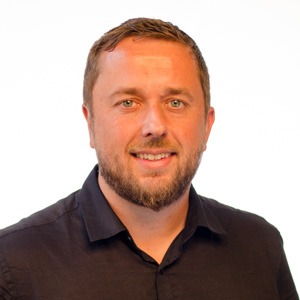
ABOUT TIM
Tim Skrotzki is the Senior Market Development Lead for Elevate, a nonprofit dedicated to promoting smarter energy use for all by working to transform the energy system into one that is cleaner, more inclusive, and equitable. Tim manages Elevate’s strategic engagement team in Michigan through collaboration with Michigan Energy Options by designing and delivering sustainable and equitable programs customized to lift disadvantaged communities and underserved markets. He is currently working as part of the Detroit Preservation Partnership preserving affordable housing through green asset management planning and deploying solar plus storage technology for community resiliency hubs. Tim was awarded 2020 Most Valuable Professional by Corp! Magazine and is a graduate of the Great Lakes Leadership Academy Leadership Advancement Program.
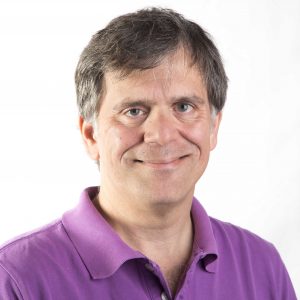
ABOUT VITO
Vito Greco is the Director of Solar Programs for Elevate. In his role, Vito builds strategies that accelerate solar deployment for underserved communities and critical institutions, including affordable housing, governments, nonprofits, and women and minority-owned businesses. He is developing strategies and processes for integrating energy efficiency, water efficiency, solar, and energy storage into deployment strategies, property assessments, procurements, and portfolio work in markets across the country. Vito has developed strategies for the City of Chicago, City of Detroit, Cook County, State of Michigan, and many other governments, agencies and municipalities. A national thought leader for low-income solar deployment, he has provided technical assistance to the U.S. Dept. of Energy, Clean Energy for Low Income Communities (CELICA), the National Community Solar Partnership, and many regional, state, and local agencies and organizations.



